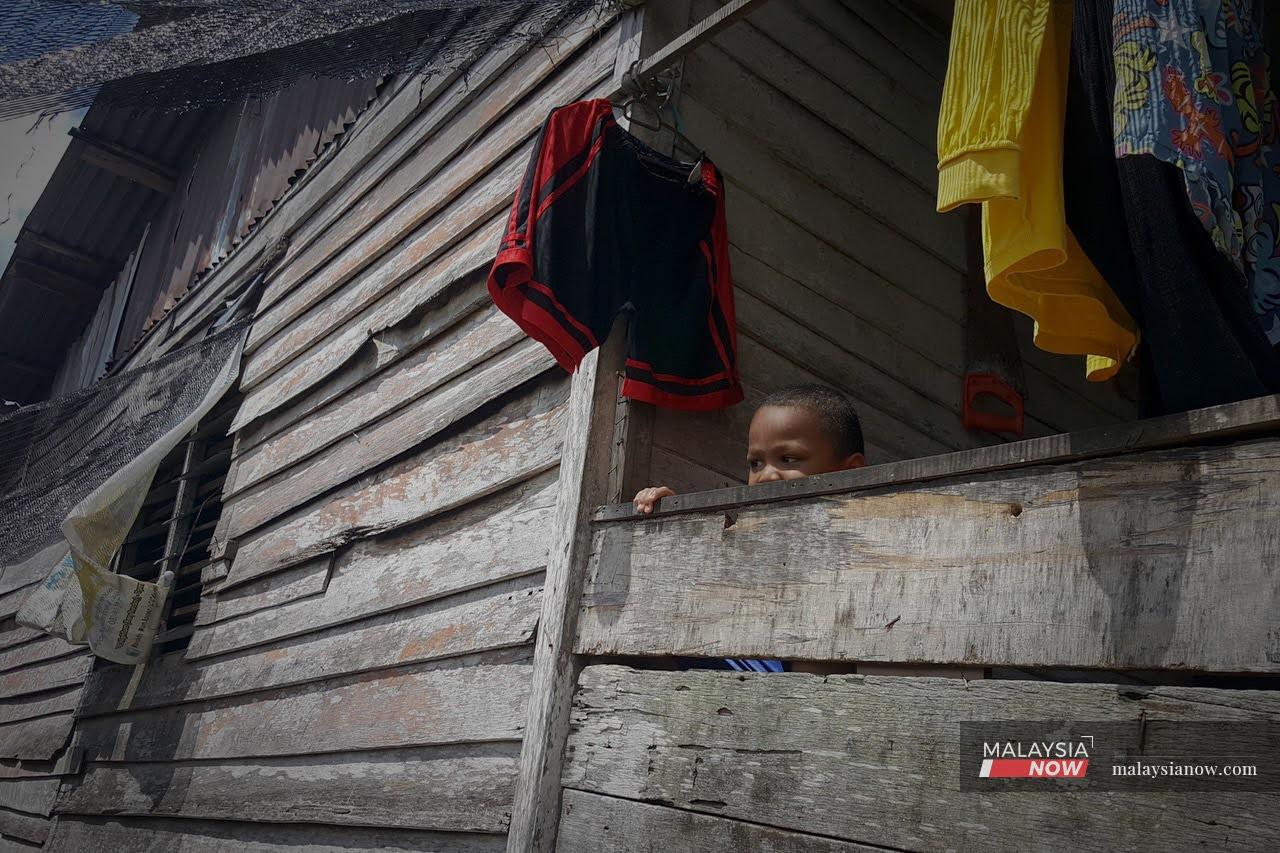‘Malaysian but not’: home ministry told to speed up citizenship requests for stateless kids in Sarawak
Sarawak state minister warns of social problems arising as a result of the lengthy application process.
Just In
A Sarawak minister has urged the home ministry to expedite the process for citizenship applications for stateless children in Sarawak, warning that the “prolonged denials” will have a negative impact on society.
Fatimah Abdullah, the state welfare, community wellbeing, women, family and childhood development minister, said the majority of such children had at least one Malaysian parent while others were abandoned with no way of tracking down their parents.
“Each day of waiting means the children are growing,” she said.
“Without citizenship, they are unable to go to school and are deprived of education. No education means their future will be affected.”
Even those who can attend school must often deal with the higher fees imposed on foreign students, which Fatimah said would affect those from the lower income bracket.
“For school leavers, they are unable to apply for jobs or to learn a skill at training institutions,” she added. “This affects their future well-being, and when a child does not have any form of legal identification, this will lead to social issues.
“The prolonged denial will have an adverse impact because you don’t know where you belong. You feel that you are Malaysian, but you are not Malaysian.”
Fatimah’s remarks follow the announcement by Home Minister Hamzah Zainudin of a special card to be issued to foreign nationals and their children who have lived in Sabah for a long time.
He said this would enable the authorities to determine the number of foreigners residing in the state.
Fatimah said there were thousands of stateless children in Sarawak who had no proper papers and were left vulnerable to exploitation.
The Sarawak Special Committee on Citizenship has received just over 800 applications since its inception in 2016.
“You feel that you are Malaysian, but you are not Malaysian.”
But Fatimah said this number does not include the applications submitted directly to the home ministry before the establishment of the special committee.
“There could be more,” she added.
And the vast size of the state, compounded by its rugged terrain and rivers, makes it difficult for many to make the journey to submit their applications. This is especially the case for those living in rural areas where proper roads are few and far in between, and residents are unfamiliar with the administrative requirements involved.
“We have seen cases of women forced into prostitution to make ends meet, who leave their infant children with their aged parents in longhouses and villages,” Fatimah said.
“We are very concerned about the length of time taken to inform the applicants about their applications, whether they have been approved or not.”
In the meantime, she said, the problems faced by stateless children only increase as they grow older.
Fatimah said the federal policy on stateless children often overlooks the circumstances of those in Sarawak. She also urged the education ministry to empathise with the situations of these children, whom she said had not asked to be born this way in the first place.
“The new policy under the education ministry requiring stateless children to produce passports to enrol in government schools will definitely affect many in Sarawak,” she said.
There is also the problem of constant shifts in policy depending on political developments, she said.
She said some Malaysian parents submitted applications for citizenship on behalf of their adopted foreign children, or children who had been abandoned and placed in welfare homes.
Others had children whose adoptions were not properly registered, or children born out of wedlock or to parents who were not married and whose mothers were foreigners.
She cited a recent study by Universiti Malaysia Sarawak which found that one of the major reasons for the late registration of children was a lack of awareness among parents about the importance of having identification documents.
She said since 2017, her ministry through the Sarawak Social Development Council had conducted awareness and advocacy programmes as part of attempts to address the issue of statelessness as well as the problems of personal documents among the vulnerable and at-risk communities, particularly those living in villages along foreign borders.
She said efforts in the state would continue, with the interagency Randau programme to inform the public about the importance of citizenship, among others.
Plans for talks with skills training centres in the state are also underway, to allow stateless children to further their studies provided that they can show that they have applied for citizenship and are still awaiting a response from the home ministry.
“The state government understands that we cannot depend on the administrative machinery of the home ministry and the National Registration Department,” she said.
Subscribe to our newsletter
To be updated with all the latest news and analyses daily.
